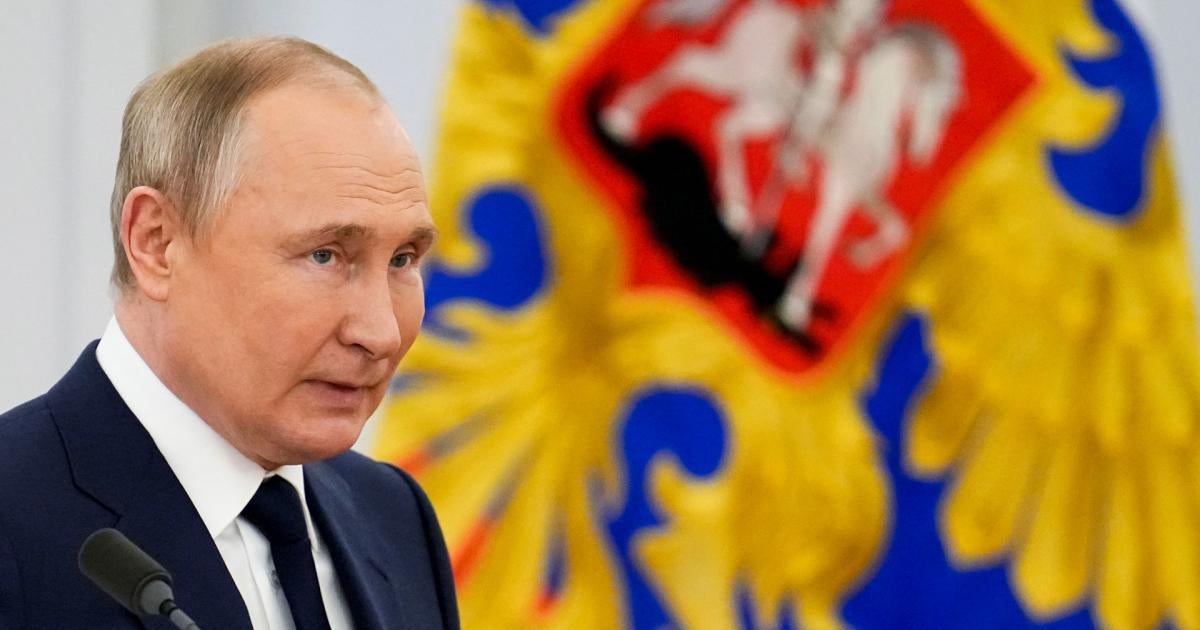Building a War-Crimes Case Against Vladimir Putin

Two years ago, Human Rights Watch analyzed who bears command responsibility for war crimes in Syria’s Idlib province, the one part of the country still controlled by the armed opposition to President Bashar al-Assad’s regime.
There, we documented 46 cases in which the Russian-Syrian military alliance hit hospitals, schools, markets and apartment buildings.
The lack of any legitimate military target in the vicinity strongly suggests that these attacks were deliberate and unlawful. We determined that command responsibility for these apparent war crimes went all the way to the top – to Russian President Vladimir Putin. In determining Mr. Putin’s responsibility in Syria, we noted that he is commander-in chief of Russia’s armed forces and had been regularly briefed about Russian military operations in Syria, including during a visit to Damascus at the height of military operations in Idlib. Rather than express disapproval, he reportedly conferred the Hero of Russia award, the nation’s highest honour, on two generals who had overseen military operations during the offensive in Idlib. One of these generals, Alexander Chaiko, now oversees Russia’s Eastern Military District, and in March, he reportedly visited Kyiv Oblast to present Russian troops with medals prior to their withdrawal from Ukraine in the following days. Now, with Russian war crimes apparently being committed in Mr. Putin’s war in Ukraine, determining who bears command responsibility will again be an important focus of the International Criminal Court (ICC) investigation that has already begun. As in Syria, an analysis to prove whether Mr. Putin and other senior Kremlin officials knew or should have known of such crimes by troops under their command, and failed to stop them, should now be done. We don’t know exactly what information reaches Mr. Putin, but it is difficult to imagine that he is oblivious to the massive global media attention to, for example, the summary executions in Bucha or the indiscriminate bombardment of Mariupol and Kharkiv. Austrian Chancellor Karl Nehammer reportedly spoke to Mr. Putin about such crimes during their meeting on April 11, and indeed, Mr. Putin has demonstrated knowledge of these reports by denying them. In addition, with Russian delegates present, the United Nations Security Council, General Assembly and Human Rights Council have addressed Russian atrocities in Ukraine.
The decisive issue will thus lie in determining whether he took steps to stop them and to punish those who committed them. On this issue, Mr. Putin and the Kremlin seem to be digging a deeper and deeper hole. A commander respecting their legal obligations, upon learning of such atrocities, would immediately order troops to stop. Instead, Mr. Putin has declared reports of these war crimes to be “fake,” as if signalling to Russian troops not to worry about committing them because the Kremlin will help to cover them up. Mr. Putin has also appointed General Aleksandr Dvornikov to command all military operations in Ukraine. Gen. Dvornikov was among the military leaders who, working with Syrian forces, had directed Russia’s war-crime bombing campaign in Syria between 2015 and 2016, including the destruction of Eastern Aleppo. As he did for other commanders credibly implicated in war crimes, Mr. Putin honoured Gen. Dvornikov with the Hero of Russia Award. By doing so, Mr. Putin again appears to be tacitly giving the green light for more such atrocities in Ukraine. Mr. Putin even bestowed honours on the Russian military brigade that has been accused of massacring civilians in the Ukrainian village of Bucha, saying that its “skillful and resolute actions” are “an example of the performance of military duty, courage, selflessness and high professionalism.” Even if the ICC were to charge Mr. Putin for war crimes committed in Ukraine, would that make a difference? His actions suggest that he feels secure in the Kremlin, and that no one would dare to arrest him in his nuclear-armed nation. But Mr. Putin, in essence, is betting on remaining president-for-life. That is a difficult position for any aging war criminal to maintain. Indeed, others have not managed it successfully, including former presidents Slobodan Milosevic of Serbia, Omar al-Bashir of Sudan, Hissène Habré of Chad and Charles Taylor of Liberia. Justice has a long memory, and one never knows when it might be possible. Demonstrating responsibility for war crimes in Ukraine is important not only as a matter of justice, but also for the possibility of deterring further commission of such crimes today.
Read the full article at the original website
References:
- https://www.hrw.org/report/2020/10/15/targeting-life-idlib/syrian-and-russian-strikes-civilian-infrastructure
- http://www.debri-dv.ru/article/29453/v_vostochnom_voennom_okruge_smenilsya_komanduyushchiy
- https://t.me/milinfolive/79446
- https://www.hrw.org/news/2022/04/21/ukraine-russian-forces-trail-death-bucha
- https://edition.cnn.com/2022/04/13/europe/nehammer-putin-meeting-connect-the-world-intl/index.html?msclkid=aa247e23bbcc11ecbfe067d2de946f61
- https://www.itv.com/news/2022-04-12/president-putin-denies-war-crimes-as-russians-appear-conflicted-over-ukraine
- https://www.nytimes.com/live/2022/04/12/world/ukraine-russia-war-news#evidence-belies-putins-claim-that-bucha-atrocities-are-fake
- https://foreignpolicy.com/2022/04/12/russia-new-top-commander-dvornikov-ukraine/
- https://news.sky.com/story/ukraine-war-who-is-the-butcher-of-syria-general-aleksandr-dvornikov-and-why-has-russia-put-him-in-charge-in-ukraine-12589077
- https://www.nytimes.com/live/2022/04/19/world/ukraine-russia-war-news#putin-honors-the-russian-military-unit-accused-of-mass-civilian-killings-in-bucha
